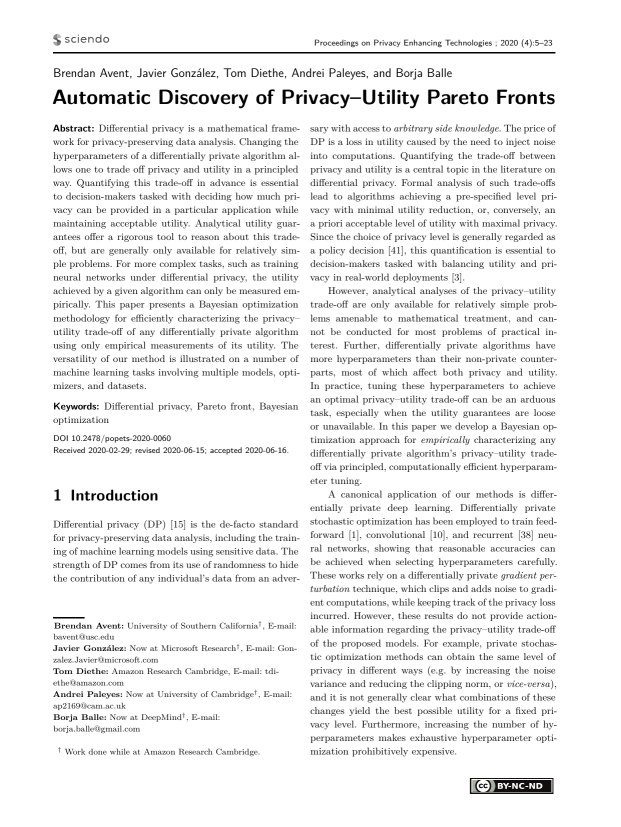Automatic Discovery of Privacy–Utility Pareto Fronts
Authors: Brendan Avent (University of Southern California†), Javier González (Now at Microsoft Research†), Tom Diethe (Amazon Research Cambridge), Andrei Paleyes (Now at University of Cambridge†), Borja Balle (Now at DeepMind†)
Volume: 2020
Issue: 4
Pages: 5–23
DOI: https://doi.org/10.2478/popets-2020-0060
Abstract: Differential privacy is a mathematical framework for privacy-preserving data analysis. Changing the hyperparameters of a differentially private algorithm allows one to trade off privacy and utility in a principled way. Quantifying this trade-off in advance is essential to decision-makers tasked with deciding how much privacy can be provided in a particular application while maintaining acceptable utility. Analytical utility guarantees offer a rigorous tool to reason about this tradeoff, but are generally only available for relatively simple problems. For more complex tasks, such as training neural networks under differential privacy, the utility achieved by a given algorithm can only be measured empirically. This paper presents a Bayesian optimization methodology for efficiently characterizing the privacy– utility trade-off of any differentially private algorithm using only empirical measurements of its utility. The versatility of our method is illustrated on a number of machine learning tasks involving multiple models, optimizers, and datasets.
Keywords: Differential privacy, Pareto front, Bayesian optimization
Copyright in PoPETs articles are held by their authors. This article is published under a Creative Commons Attribution-NonCommercial-NoDerivs 3.0 license.


